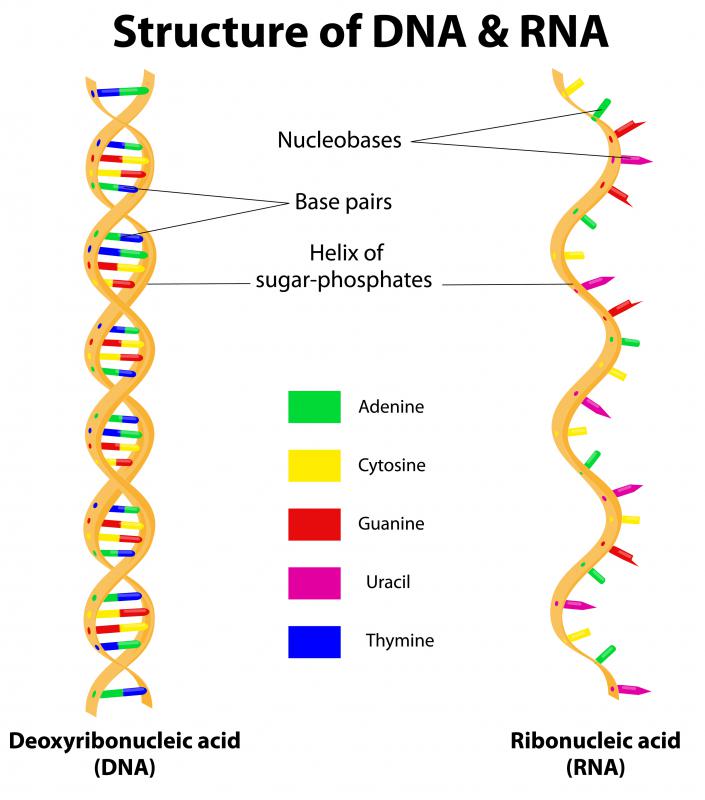At TheHealthBoard, we're committed to delivering accurate, trustworthy information. Our expert-authored content is rigorously fact-checked and sourced from credible authorities. Discover how we uphold the highest standards in providing you with reliable knowledge.
What is Expression Cloning?
Expression cloning is a form of cloning in which a scientist reproduces DNA of particular interest and implants it into a cell so that the DNA can be studied in action to learn more about it. While the term “cloning” often conjures up an image of reproductive cloning, in which a genetic copy of a living organism is created, expression cloning only clones a segment of DNA, not an entire organism. It is used in scientific research, and it has contributed significantly to many studies in the field of DNA and the genome of living organisms.
In expression cloning, a scientist first selects a DNA segment of interest, and then attaches it to a plasmid which can penetrate a cell to carry the DNA inside. These plasmids are known as cloning vectors or expression vectors. Once a cell has been transfected, as this process is called, the scientist can culture the cell to create numerous cloned cells which can be further studied. Each cloned cell will follow the instructions in the introduced DNA, producing a response which can be analyzed in the lab.

This type of cloning can also be combined with recombinant DNA technology, in which a section of DNA is altered for scientific study. Using this technique, a researcher could do something like change the proteins expressed by a particular segment of DNA in order to figure out how an organism becomes resistant to antibiotics. Expression cloning can also be used to create a library of cloned DNA which can be distributed to other laboratories for additional study.

Scientists can also create an assortment of clones, with each one expressing a specific protein, in the quest for a particular gene. In these instances, the cells can be cultured and then studied, with the cells which produce the relevant gene being isolated for further study. One could think of this type of study as a series of cake recipes which are experimented with to find a cake with the desired properties.
Unlike reproductive cloning, expression cloning does not produce a viable organism, but only a small section of DNA. For people who struggle with the ethical issues involved in reproductive cloning, expression cloning is sometimes viewed as acceptable, because it does not create something which could be considered “alive.” Expression cloning can also be used in therapeutic cloning, and it will theoretically play a role in gene therapy, in the event that gene therapy becomes viable.
AS FEATURED ON:
AS FEATURED ON:












Discussion Comments
Thanks. I needed this for a research paper.
@SkyWhisperer - I agree. I also think that it will help scientists overcome ethical hurdles associated with cloning, like the article talks about.
However, I don’t think it’s all rosy. People who are predisposed to oppose cloning will protest that this kind of subcloning represents a “slippery slope” down the pathway to the real thing.
The science is highly politicized. Some people will no doubt view expression cloning as an end run towards the eventual goal of complete cellular cloning.
There’s not much you can say to these people; but I don’t think that should stop us from learning what we can about DNA, a little at a time.
So I guess they are basically grafting a piece of DNA from one cell to another, instead of creating a new organism.
I like this approach. It’s incremental, and it gives scientists the opportunities to observe the behavior of cells in a piecemeal manner. If they were simply to clone an entire organism, and something went wrong, they would then have to track where in the DNA strand the problem was found.
With expression cloning, they can take a more methodical, gradual approach to understanding the behavior of DNA.
Post your comments